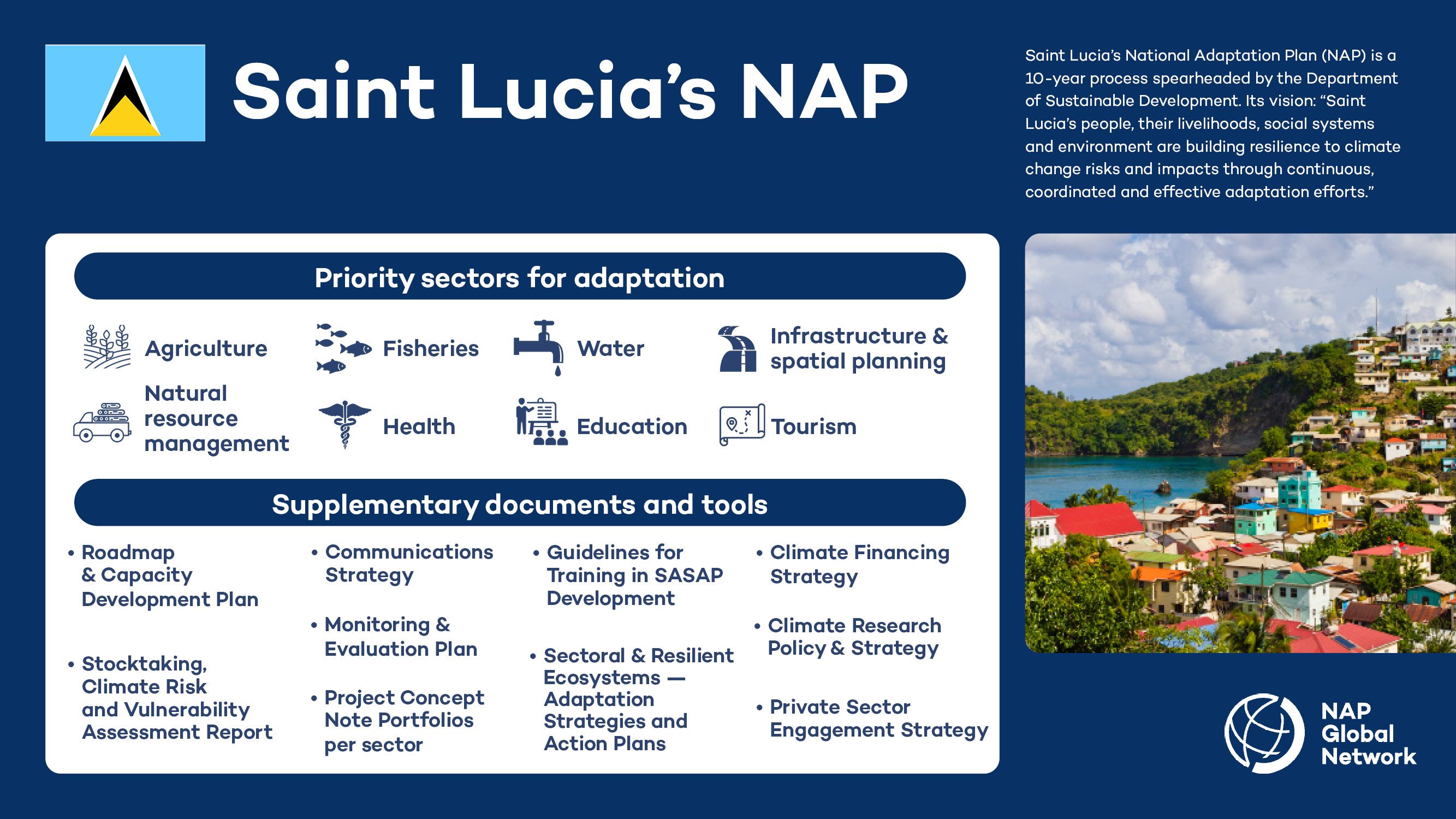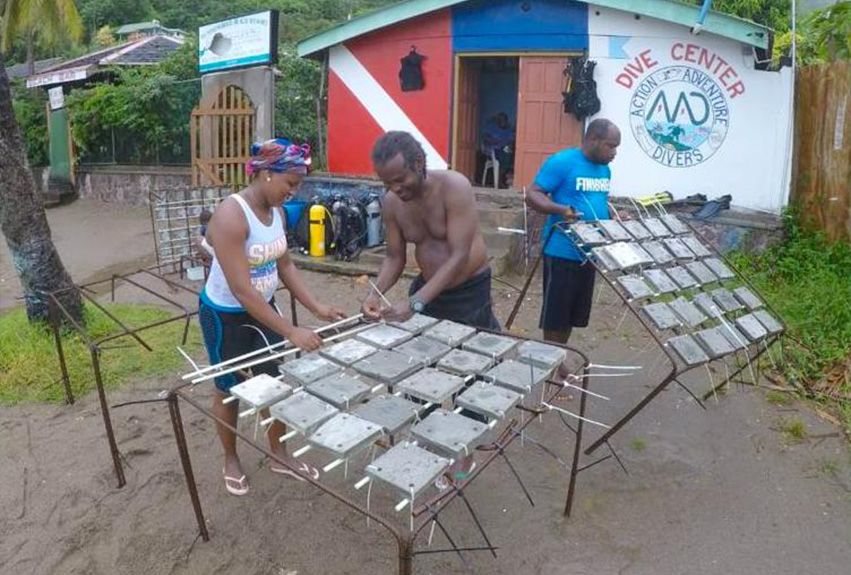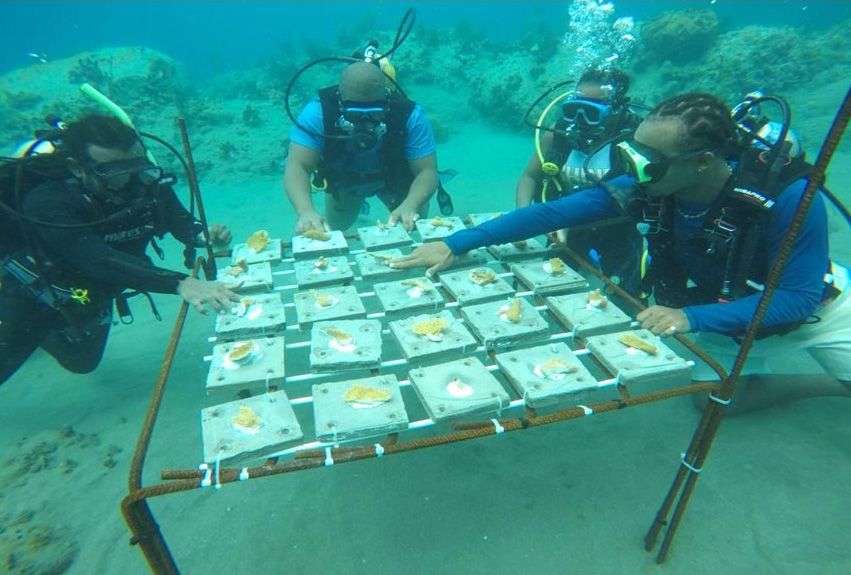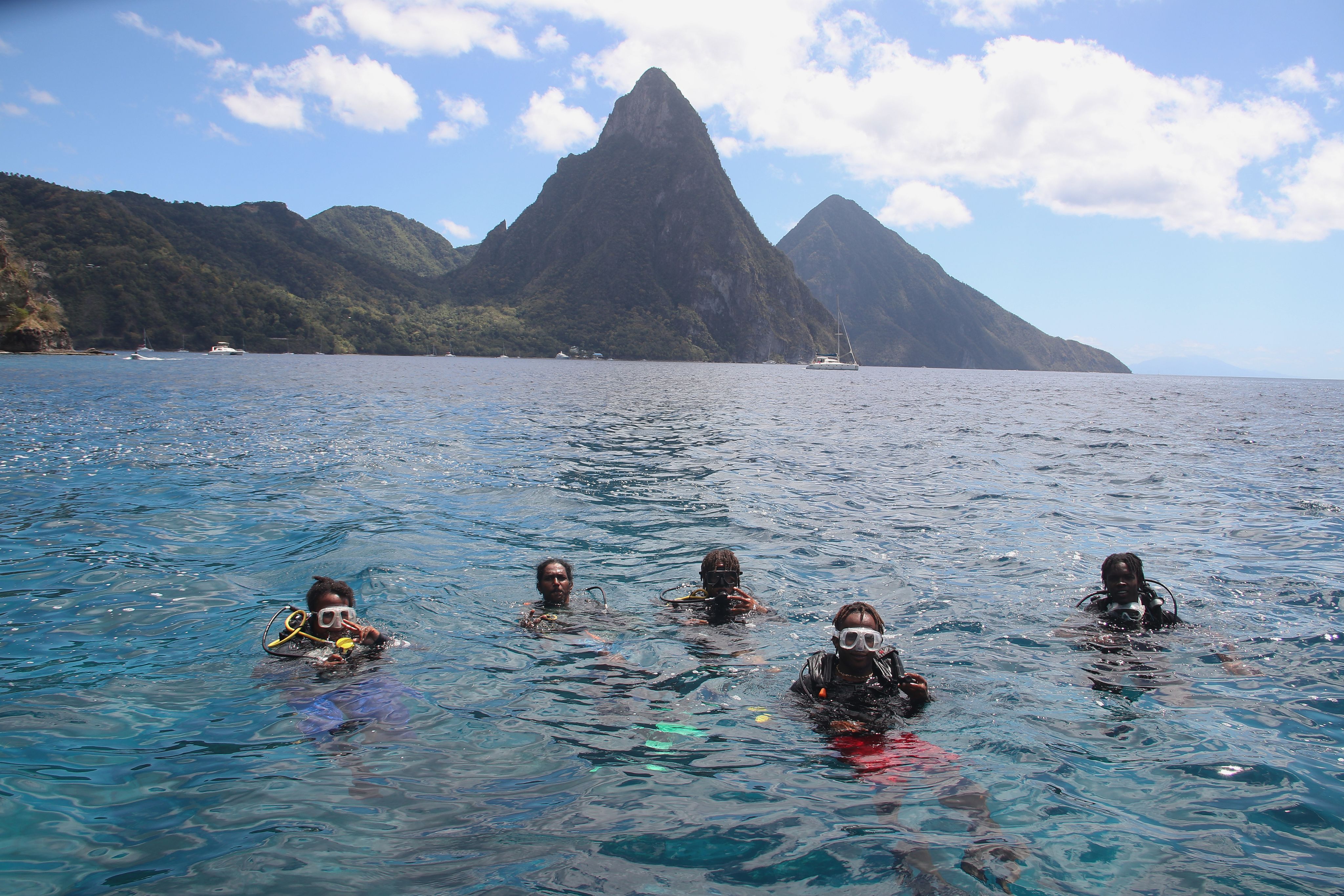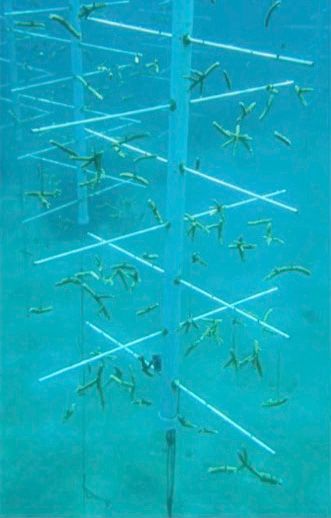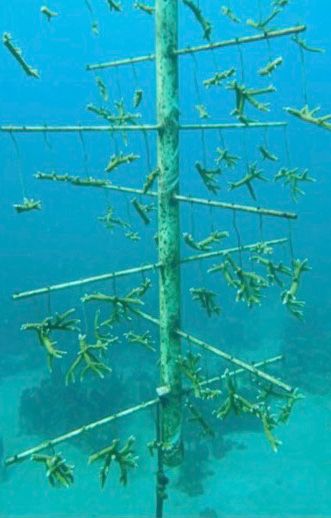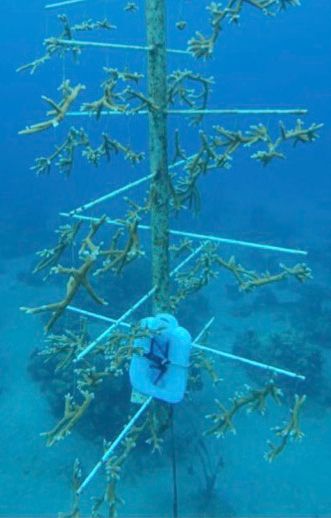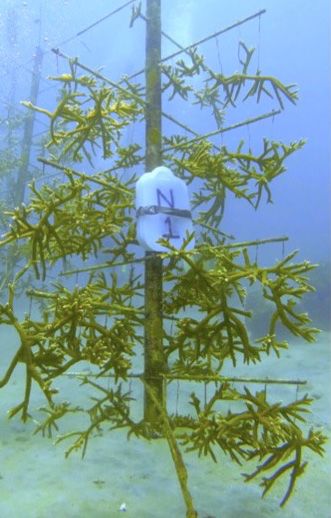The Coral Gardeners of Saint Lucia:
Local heroes against coral bleaching
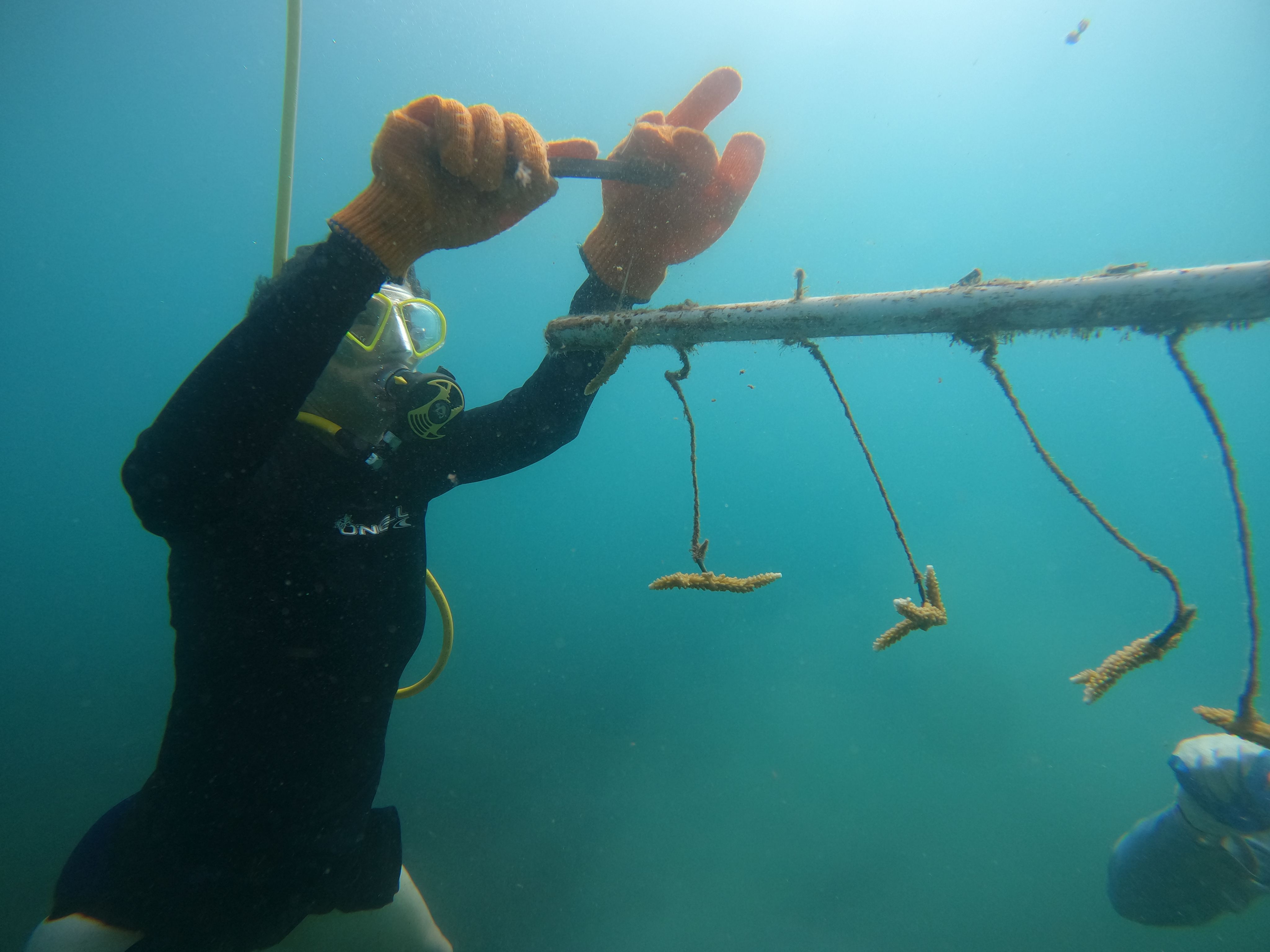
A threat to the health of coral reefs is a threat to the culture and livelihoods of Saint Lucians.
“Anyone who says climate change is not real must be living under a rock. Our coral reefs are being decimated,” says Chester Nathoniel, co-owner of Action Adventure Divers. “Coral bleaching, a result of warming ocean temperatures, is threatening our fundamental way of life.”
The world is in a state of climate emergency. Even if we successfully limit global warming to 1.5°C, the Intergovernmental Panel on Climate Change (IPCC) has warned, with “very high confidence,” that we stand to lose 70—90% of coral reefs.
Chester's diving business relies on the vibrant colours and thriving marine life surrounding Saint Lucia’s coral reefs, attracting tourists with the promise of an underwater Caribbean paradise. Coming from a fishing family, Chester knows that the abundance of fish—both essential for their livelihood and a contributor to the island’s food security—depends on coral reefs for nutrients and shelter.
In the coastal town of Soufriere, Chester leads a group of young individuals to protect coral reef ecosystems. They are part of the Coral Restoration Programme led by the Centre for Livelihoods, Ecosystems, Energy, Adaptation and Resilience in the Caribbean Limited (CLEAR Caribbean Ltd) and have turned it into a testament to the success of public–private partnerships for climate change adaptation.
Photo: Chester Nathoniel telling his story.
These local heroes are known as coral gardeners.
“It dawned on us that if something was not done quickly, not only would tourism be negatively affected, but so too would livelihoods of local communities that rely chiefly, or even to a lesser extent, on fishing,” said Donovan Brown, an executive member of the Saint Lucia Dive Association.
The programme was identified as a priority action for the fisheries sector in Saint Lucia’s National Adaptation Plan (NAP) (2018–2028). This mandate helps the coral gardeners align their efforts with national priorities and enhances opportunities for them to gain access to more resources, more support to better track the progress of their work, and more channels to share their experiences across the island to make a bigger impact. While just beginning, the programme is already showing strong results.
Photo: A group of Saint Lucia coral gardeners (Donovan Brown)
Chester's diving business relies on the vibrant colours and thriving marine life surrounding Saint Lucia’s coral reefs, attracting tourists with the promise of an underwater Caribbean paradise. Coming from a fishing family, Chester knows that the abundance of fish—both essential for their livelihood and a contributor to the island’s food security—depends on coral reefs for nutrients and shelter.
In the coastal town of Soufriere, Chester leads a group of young individuals to protect coral reef ecosystems. They are part of the Coral Restoration Programme led by the Centre for Livelihoods, Ecosystems, Energy, Adaptation and Resilience in the Caribbean Limited (CLEAR Caribbean Ltd) and have turned it into a testament to the success of public–private partnerships for climate change adaptation.
Photo: Chester Nathoniel telling his story.
These local heroes are known as coral gardeners.
“It dawned on us that if something was not done quickly, not only would tourism be negatively affected, but so too would livelihoods of local communities that rely chiefly, or even to a lesser extent, on fishing,” said Donovan Brown, an executive member of the Saint Lucia Dive Association.
The programme was identified as a priority action for the fisheries sector in Saint Lucia’s National Adaptation Plan (NAP) (2018–2028). This mandate helps the coral gardeners align their efforts with national priorities and enhances opportunities for them to gain access to more resources, more support to better track the progress of their work, and more channels to share their experiences across the island to make a bigger impact. While just beginning, the programme is already showing strong results.
Photo: A group of Saint Lucia coral gardeners (Donovan Brown)
Coral Restoration:
A national adaptation priority
Coral reefs are among our world’s most threatened ecosystems due to the changing climate and increasing local pressures, according to the International Union for Conservation of Nature.
In Saint Lucia, the bleaching and shocks to coral health will have severe economic, human health, and social consequences. While covering less than 0.1% of our ocean flood, reefs host over 25% of all marine fish species. Additionally, coral reefs buffer shorelines, protecting coastal communities from storm surges, hurricanes, and floods. According to an analysis published in 2011, the cost of climate change-induced damage to coral reefs in Saint Lucia could reach between USD 1.7 billion and 3.4 billion by 2050.
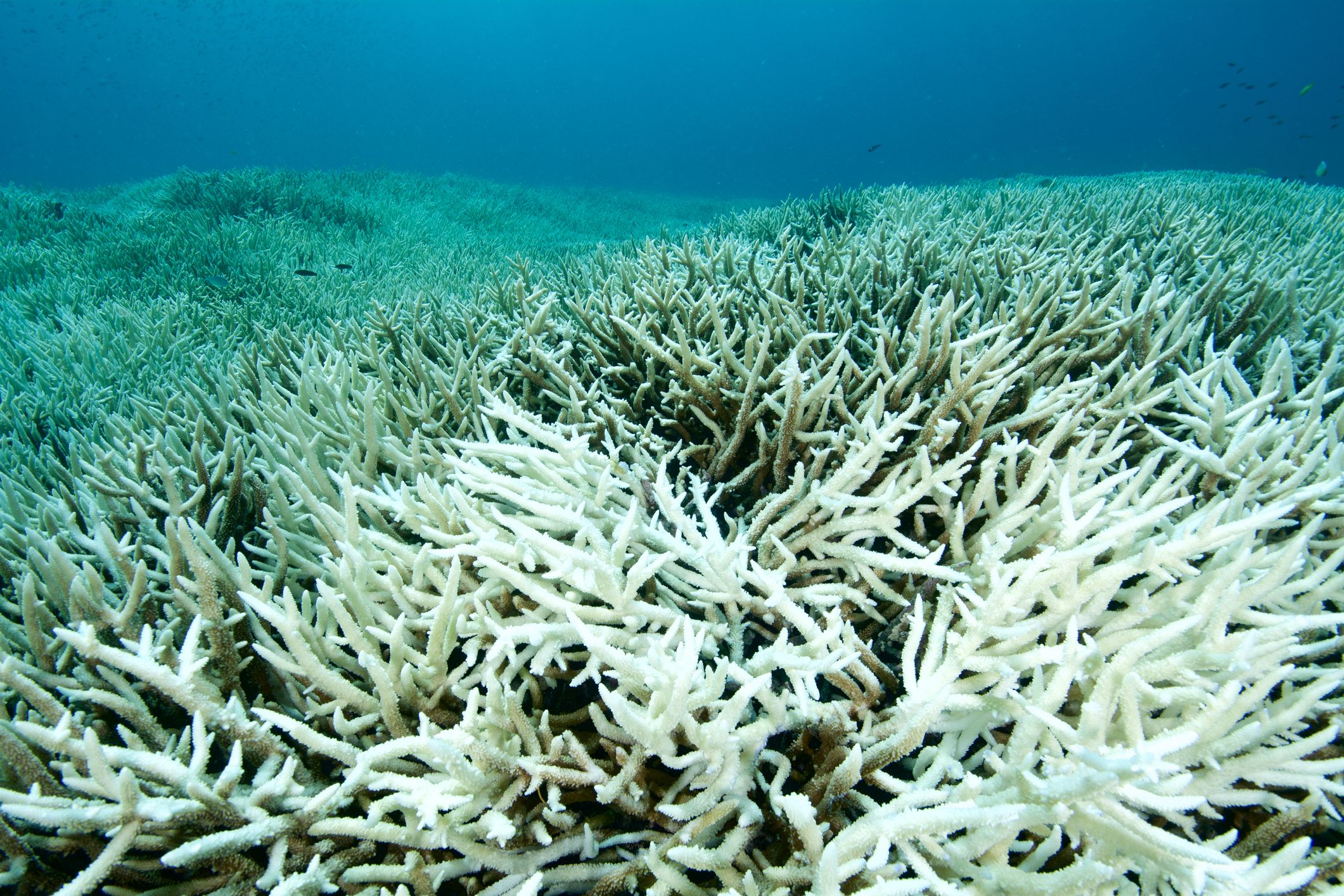
Though not all coral bleaching is caused by warming water, a spike of 1–2°C in the water that continues over several weeks causes stress on the coral and leads it to expel the algae that live symbiotically in its tissues. The coral then turns white and, if these conditions continue for too long, eventually dies. The IPCC further indicates that ocean ecosystems, such as coral reefs, are already experiencing large-scale changes, and critical thresholds are expected to be reached at global warming of 1.5°C and higher. As Small Island Developing States (SIDS) prepare for warming seas, coral restoration is a vital approach to ecosystem-based adaptation that protects coral reefs from the changing climate while providing ecosystem goods and services that are essential for people’s lives and livelihoods. Coral gardeners in Saint Lucia are pivotal to this effort, as prioritized in the NAP.
Defined as a 10‐year process (2018–2028), the island’s NAP lays out medium- to long-term adaptation measures across eight priority sectors. Coral gardeners play an important role in helping efforts to positively influence thinking, mould outcomes, change behaviour, and instigate action across the country at all levels.
Taking Action in Soufriere:
A collaboration between government, non-profits, and the private sector
Facing the Caribbean Sea, the village of Soufriere is the base of the Coral Restoration Programme, which aims to produce approximately 4,000 coral colonies on selected reefs with the help of its coral gardeners.
Initiated by CLEAR Caribbean in 2016, the Coral Restoration Programme is delivered through a partnership between the Anse Chastanet and Jade Mountain Resort hotels, the Sandals Foundation, PANORAMA, and the Department of Fisheries of the Government of Saint Lucia.
“The effects of climate change are a sad reality for the Caribbean” and contribute to “the deterioration and destruction of over 50% of coral reefs in the region,” said Karolin Troubetzkoy, Executive Director, Marketing & Operations, Anse Chastanet and Jade Mountain Resort. “This in itself is a huge motivator to get involved.”
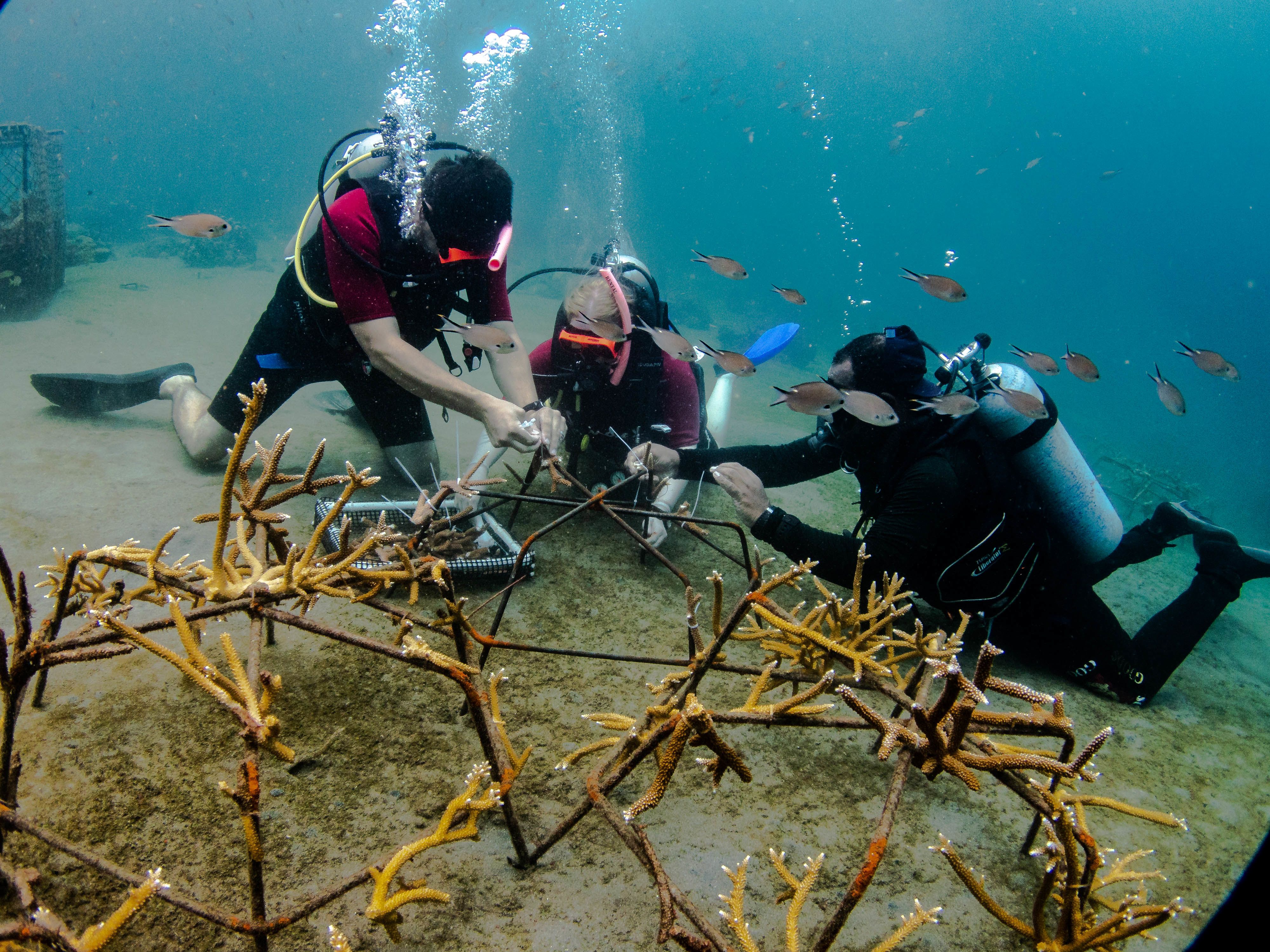
The programme is designed to help local coral reef ecosystems adapt to the effects of climate change by introducing species of coral that are not prone to bleaching in warming waters. “We have planted over 400 fragments of corals onto the reef, and we are presently hosting 250 fragments of corals in the coral nursery waiting to reach the recommended size for out-planting,” said Troubetzkoy.
Consistent with the NAP process, coral gardeners are restoring the shallow water populations of elkhorn (Acropora palmata) and staghorn (Acropora cervicornis) coral species. The immediate focus of the programme is to establish a sustainable recovery plan for these critically important, fast-growing Acroporids. The end goal is to develop genetically diverse thickets of mature coral capable of growing and spreading to nearby shallow reef areas.
Coral Gardening
The Coral Restoration Programme has been made possible by a remarkable team of young adults from across Saint Lucia. Before embarking on their underwater mission, coral gardeners are first trained as certified divers in the pool at Sandals Resort.
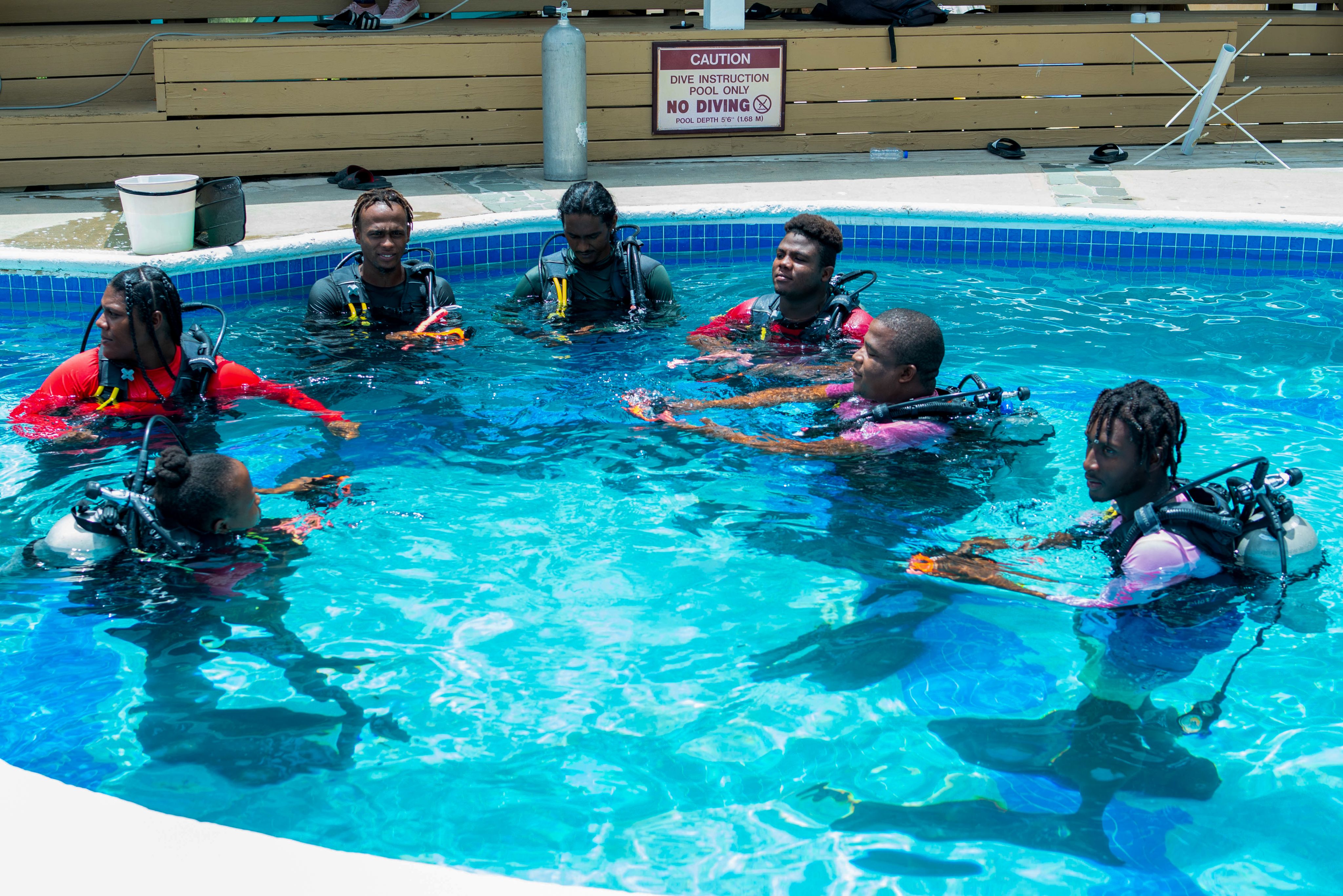
Photo: Chester Nathoniel
Photo: Chester Nathoniel
Photo: Sandals Resort
Photo: Sandals Resort
They also construct vertical and horizontal structures that will be placed underwater to begin the coral gardening process.
During their dives, the gardeners are separated into two groups. While some focus on tending to the existing corals, ensuring their well-being and maintenance, others take charge of the outplanting process, carefully transporting coral from the nurseries and introducing it into its new reef habitats.
Success of the Programme Already Evident
The coral growth achieved in 11 months, as shown below, demonstrates the potential of this programme to restore the underwater ecosystem. The endangered elkhorn and staghorn species are doing especially well, according to the Department of Fisheries, the lead entity for the execution of measures in the Fisheries Sectoral Adaptation Strategy and Action Plan under Saint Lucia’s NAP.
“It’s amazing to see how once nearly dead reefs can come back to life as a direct result of what we do.”
The promising early adaptation achievements have important lessons that will be applied to adaptation actions across the country in years to come. The programme in Soufriere is highlighted in Saint Lucia’s first-ever NAP progress report as a key achievement for the country’s fisheries sector and one that has not only led to positive ecosystem results but also enhanced human and institutional skills and knowledge to adapt to climate change.
Photos (below): Department of Fisheries
July 20, 2017
September 26, 2017
January 14, 2018
June 15, 2018
Under the NAP process, the programme is not only re-seeding coral but is also engaging local partners (including the private sector), offering training for community members, raising awareness about coral restoration through a communications strategy, developing a monitoring plan to track the performance of outplanted coral, and developing approaches to finance this work in the long term, including through private sector investments.
The programme is also providing important research and lessons learned for the global adaptation community as coral genotypes are determined and tracked to ensure both genetic diversity and the selection of the most resilient specimens.
As for the coral gardeners, they are benefitting by learning new skills and growing their careers in diving and coral restoration. The community of Soufriere has also expressed profound gratitude for the programme.
“Through coral gardening, I was able to expand my business which now includes taking visitors scuba diving and snorkelling.”
“What is really heartening is seeing fisherfolk landing more fish than before and knowing that you are partly responsible for the availability of more fish. It is humbling to know that the restoration work carried out by the team resulted in more visitors coming to the community and improving the state of the community economy and, by extension, the country’s economy.”
“Through coral gardening, I was able to expand my business which now includes taking visitors scuba diving and snorkelling.”
“What is really heartening is seeing fisherfolk landing more fish than before and knowing that you are partly responsible for the availability of more fish. It is humbling to know that the restoration work carried out by the team resulted in more visitors coming to the community and improving the state of the community economy and, by extension, the country’s economy.”
What’s Next for the Programme
The Coral Restoration Programme requires ongoing collaboration, adequate funding, and continuous learning opportunities. Through the country’s NAP process, the lessons and experiences gained through the programme are being widely shared with national and local stakeholders, as well as with other countries grappling with coral bleaching. Additionally, other efforts consistent with the NAP process will focus on expanding coral nurseries through partnerships with local entities.
As an ardent advocate for the programme, Chester emphasizes the need to continue their work. “We’re fighting a war, winning small battles at a time,” he says.
Exploring diverse adaptation techniques to protect coral reefs from climate change needs to be a priority—both in Saint Lucia and around the world. That being said, the long-term success of saving reefs will depend on urgently reducing global greenhouse gas emissions to mitigate climate change; as the Saint Lucia-led climate change awareness campaign urged, “1.5 to stay alive.”
As long as we support local heroes like Saint Lucia’s coral gardeners, there is reason for optimism. By caring for their coral ecosystems, they are not only protecting Saint Lucia’s natural beauty, but also the resilience of its ecosystems, communities, and economy.
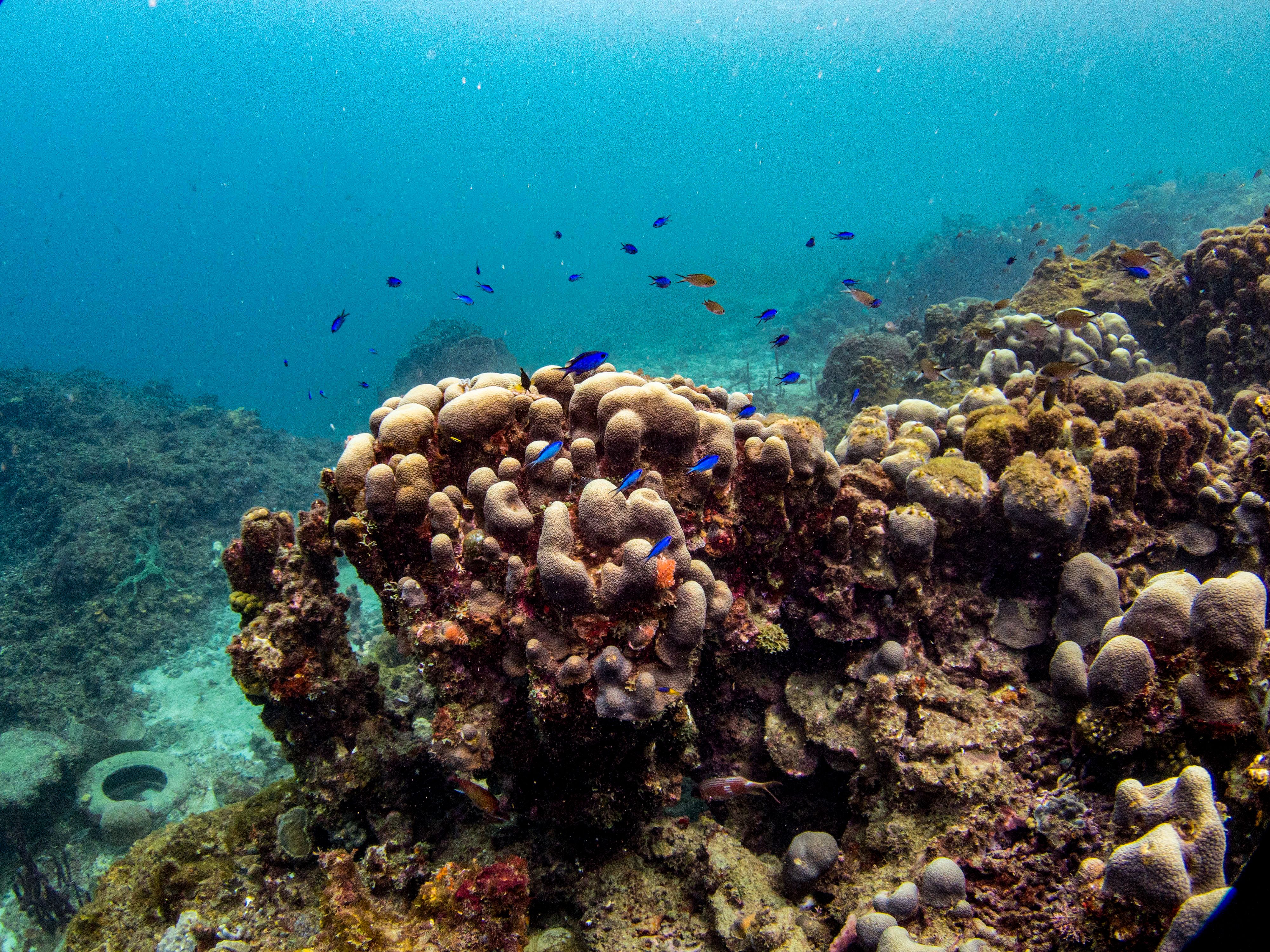
Watch: Video on the coral restoration programme by Caribbean Aqua-Terrestrial Solutions (CATS) program
Credits
Photos (unless otherwise credited) and interviews: Lucius Doxerie
Written by: Catherine Burge, Lucius Doxerie
Story design by: Elise Epp
Special thanks to: Dawn Pierre-Nathoniel, Maier Sifflet, Jermaine Descartes, Ruth Phillips Itty (Department of Sustainable Development, Saint Lucia); Leona Mathurin; Chester Nathoniel (Action Adventure Divers); Donovan Brown (Saint Lucia Dive Association); Donovan Mathurin; Karolin Troubetzkoy (Anse Chastanet & Jade Mountain Resort); Heidi Clarke (Sandals Foundation); Newton Eristhé (Clear Caribbean); Shernella James; Zadel Dusauzay; Wendy Biscette; Deuxmille Alexander; Jn Louis Mathurin; and Aquinas Sylvester.
The Public-Private Partnership for the Saint Lucia Coral Restoration Programme for Resilient Ecosystems and Sustainable Livelihoods was implemented by CLEAR Caribbean Ltd with funding under the Caribbean Aqua-Terrestrial Solutions (CATS) programme. It is a partnership that also includes the Saint Lucia Department of Fisheries, the Soufriere Marine Management Association, the Caribbean Public Health Agency, and the Sandals Foundation.
The CATS programme is funded by the German Federal Ministry of Economic Cooperation and Development (BMZ) and implemented by the Caribbean Public Health Agency (CARPHA) on behalf of the Caribbean Community (CARICOM) and the Deutsche Gesellschaft für Internationale Zusammenarbeit (GIZ) in association with a number of other partners.
© 2023 The International Institute for Sustainable Development
Published by the International Institute for Sustainable Development.
This publication is licensed under a Creative Commons Attribution-NonCommercial-ShareAlike 4.0 International License.

